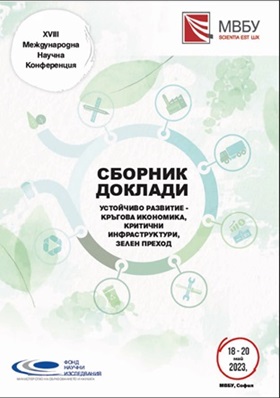Management of short-term rental (str) – regulation or deregulation? – Example of Poland
Management of short-term rental (str) – regulation or deregulation? – Example of Poland
Author(s): Dominik Borek
Subject(s): Economy, Supranational / Global Economy, Business Economy / Management, Tourism
Published by: Международно висше бизнес училище
Keywords: short term rental; regulation; accomodation; hospitality; online travel agencies
Summary/Abstract: The article presents my personal views and cannot be interpreted as the position of any body, entity or institution. The article presents the legal status as of 3 March, 2023. The article will be based on the results of quantitative empirical research Eurobarometer 495, Eurobarometr 467 and qualitative empirical research based mainly on official documents of European Union and Polish Government. The article will discuss the European Union's plans to change the regulation of short-term rental (or short-time rental) and a comparison to Polish regulations. The advantages and disadvantages of the currently functioning solutions and proposals for the future will be presented. It is also important that the relationship between the sharing economy (Eurostat 2019) and short-term rental will be shown. Examples of the sharing economy and the changes that have taken place in this area will also be presented (Schor 2014). According to the Act of 29 August 1997 on accommodation services and services of tour leaders and tourist guides, accommodation services are short-term, commonly accessible services consisting in the rental of houses, apartments, rooms, bed places as well as plots for putting up tents or for parking caravans, and in the provision of related services at the facility. Therefore, the Act, due to its nature, contains solutions that apply also to entities operating in the STR market. Naturally, Short Term Rental as a human activity has its advantages and disadvantages, and creates both benefits and opportunities for local communities. Short Term Rental (STR) is becoming an increasingly important part of the tourism sector (Eurobarometr 495, 2021), as confirmed e.g. by the interest in the area on the part of EU bodies. At present, STR accounts for nearly a quarter of the overall supply of tourist accommodation services in the European Union (EU) (Eurobarometr 2021). The increase in the share has been caused, in particular, by the emergence of online platforms, so-called Online Travel Agencies (OTA). One in four EU citizens uses STR via such a platform. I will use the following methods: dogmatic-exegetical method, empirical method with qualitative and quantitative research.
Book: Устойчиво развитие - Кръгова икономика, Критични инфраструктури, Зелен преход
- Page Range: 341-352
- Page Count: 12
- Publication Year: 2023
- Language: English
- Content File-PDF

